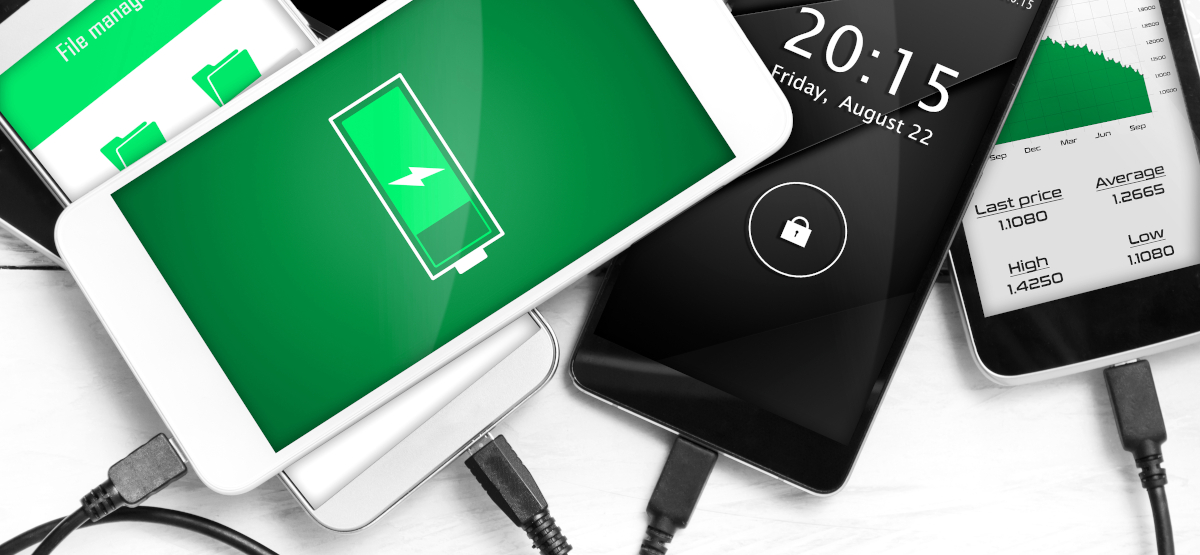#Europe is falling behind in the race to develop space-based solar power
Table of Contents
As the EU invests more into renewables, it will need to overcome hurdles around reliability, storage, transmission, and scalability to reach its ambitious 2030 renewable energy targets and Europe’s continuously growing demand for energy. Meanwhile, support for nuclear energy has created dividing lines amongst member states.
There’s no doubt it will take a mix of energy sources to build a strong, reliable, net zero machine to power the bloc’s future, but there is one contender that could help meet these challenges. Enter space-based solar power.
Studies have shown that by collecting solar energy via satellites in space, we could enjoy 24/7 access to energy transmitted wirelessly to anywhere across the globe. Unlike conventional solar panels, they don’t require large areas of land on Earth. This means they could be built large enough to produce more energy than nuclear power plants.


TNW Conference – Are you an investor? This message is for you!
Meet with the hottest startups and uncover your next venture on June 20-21. Hurry! Price increase May 17.
Read more about how this would work in practice
Space-based solar power (SBSP) could not only support Europe’s growing energy demand, but also provide significant business opportunities to energy sector players who commercialise it first. Imagine being able to beam solar energy directly to any location across the world via ground-based beam capture sites.
The tech could also spark new opportunities for Europe’s spacetech scene. UK startup Space Solar and Germany-based Emrod, for instance, are already competing to introduce new breakthroughs in wireless transmission technology, with the latter teaming up with Airbus to develop this tech further. Meanwhile, startups like Swiss Astrostrom and Finnish ReOrbit are developing new satellite configurations to meet the needs of future European Space Agency (ESA) projects. These companies are all poised to capitalise on stronger support for SBSP.
“In a time when we’re looking into so many other possibilities, the world is missing out by not looking at space-based solar power,” says Sanjay Vijendran, lead of the ESA’s SOLARIS project, which is researching the feasibility of SBSP.
However, the concept could come with a hefty price tag. A recent study by NASA concluded that SBSP would not only be more expensive than terrestrial sustainable alternatives, but also incur similar emissions costs.
Is SBSP worth the price tag for Europe’s investors?
In 2022, the ESA commissioned two independent feasibility studies into SBSP by consultancies Frazer-Nash and Roland Berger.
According to Frazer-Nash, the total costs (excluding development) of a first European SBSP system would range between €7.3bn and €13.3bn, with an operational expenditure of between €2.5bn and €3.5bn and a capital expenditure of between €4.8bn and €9.8bn over a 30-year operational life span.
Meanwhile, the Roland Berger study concluded that, assuming “substantial advances” in key technologies, a single SBSP satellite could cost a minimum of €8.1bn to build and €7.5bn to operate over 30 years. In a worst-case scenario (assuming key advances aren’t met) costs could reach €33.4bn to build and €31.1bn to operate.
Vijendran puts this into context.
We’ve assessed that it would cost €15bn to €20bn over 10 to 12 years to develop the technology until you have a first gigawatt-scale prototype,” he says. “And then something like €10bn per gigawatt scale satellite that can provide a huge amount of energy 24/7. Now these might sound like large sums of money, but the energy sector routinely spends this amount on other energy sources. A nuclear power station, for example, costs anywhere between €15bn to €25bn.
However, not everyone is optimistic about the costs. In January 2024 NASA released a new study concluding that SBSP may have life cycle costs per unit of electricity that are 12-80 times higher than terrestrial alternatives.
Proponents of SBSP, including John Mankins — former NASA physicist known as the father of SBSP — argue that NASA’s assessment errs too much on the side of caution.
“That will have a significant chilling influence, particularly in Europe, the UK, and the US. Any document that comes out with the [NASA] meatball on it is regarded almost as gospel,”Mankins said in January.
One contentious point is the baseline cost for rocket launches, which will be the biggest initial cost to getting the first satellite system into high Earth orbit. While NASA’s estimate included a conservative $1,000 [€937] per kilogram of payload carried, the ESA used launch cost estimates of $300 [€281] to $500 [€468] per kilogram.
Caution on the side of NASA could forge a clearer road for European ambitions, but rocket launch capabilities are a weak point the bloc would need to contend with.
While US space exploration has been bolstered by the promise of cheaper rocket launches by companies like SpaceX, the EU currently does not have its own reusable rocket launch capabilities, making it dependent on third countries for access to space.
According to Roland Berger’s study, space lift costs could range between €3.1bn to €16.5bn depending on advancements made in this area.
Low-cost, high-cadence, heavy-lift launchers are… necessary to enable SBSP,” the study reads. “Even with the largest and most powerful launchers available today, such as Europe’s Ariane 5 (and soon Ariane 6 in its 64 version), it would still require a very high launch cadence and a drastic reduction of launch costs to deliver into space the infrastructure necessary for a fully operational SBSP.
The ESA has long been expecting ArianeGroup’s Ariane 6 rocket booster to come to market but, after many delays, the organisation launched an open call in November to encourage launcher competition, with the aim of developing a reusable space cargo ship that could be operational by 2028.
For the EU to truly become a contender in SBSP (and the upcoming space market), it will need to break its dependency on third countries.
Martin Hoyer, a partner at Roland Berger and one of the authors of its SBSP study, believes cost reduction in reusable launch systems “could greatly enhance the economic viability of SBSP.”
Although he’s cautious to call it the definitive solution for the future of green energy, Hoyer and his team believe Europe should continue investing in this technology.
“In our research, using figures similar to what NASA assumed in their sensitivity analyses, we also observed a potential scenario where SBSP could become cost-competitive with nuclear power and even ground-based solar systems by the year 2050,” he says.
Hence, we firmly believe that it is still worthwhile to further explore this subject and, at the very least, develop a small-scale demonstrator project. The process of achieving this milestone and the knowledge gained will explicitly validate or refute the long-term feasibility of the system.
While it’s difficult to accurately predict Levelised Cost of Electricity (LCoE) in 2050 (Roland Berger’s assessment outlines four potential scenarios), cost competitiveness may not be the only driver for European policymakers and investors versus their US counterparts. Europe’s ambition to replace fossil fuels entirely — for both environmental and energy security reasons (driven partly by the war in Ukraine) — means securing an alternative that can provide a consistent baseload capacity will be key.
But would the environmental costs associated with increased rocket launches dash the EU’s hopes for a greener future?
According to Roland Berger’s study, “the environmental impact of launching SBSP systems, from a CO2 emissions perspective, is far less than lifetime emissions from equivalent fossil fuel power plants,” Hoyer says.
The question is, what happens when this technology is scaled up in the future?
The environmental cost of space-based solar farms
To turn SBSP into a reality, Europe needs energy sector players to help foot the bill. And one of the biggest draws for investors is the potential for commercialisation.
But to meet energy demand on a larger scale, we need to think beyond individual satellites and towards space-based solar farms. Would the environmental costs of building these complexes outweigh the gains?
This is a question more and more scientists are asking as the new space race heats up. It’s certain that each rocket launch causes harmful carbon particles to enter the atmosphere, but further research is required on the full implications. Some believe these carbon particles could act like a form of geo-engineering by absorbing heat, while others are concerned about the impact of debris falling back to Earth.
In a recent interview with The New York Times, Aaron Boley, an astronomer at the University of British Columbia and co-director of the Outer Space Institute, warned that the consequences are unpredictable: “We are changing the system faster than we can understand those changes,” he said. “We never really appreciate our ability to affect the environment. And we do this time and time again.”
Vijendran acknowledges that this dilemma will grow as SBSP scales.
One satellite would turn into thousands of power stations in orbit providing a lot of power for the world. But if you want to put such a large number of these big structures into space and launch all the materials from the surface of the Earth, you’re talking about thousands and thousands of launches. Even if we make the launches as clean as possible, they are going to be polluting the atmosphere to some extent.
One option is a literal moonshot: moving production and launch from the Earth to the Moon.
To investigate this idea, the ESA recently partnered with startup Astrostrom on a feasibility study. Their analysis found that Moon-produced solar power satellites would not only be cheaper than their Earth-made counterparts, but the electricity they generate would also be cost-competitive with terrestrial power alternatives.
“Launching all of this from the Moon would provide a huge environmental and cost benefit because it takes a lot less energy to launch from the Moon. And it would pay for itself because it would be a commercial market that is funding the cost of all this production and development on the Moon,” Vijendran says.
While initial infrastructure investments are estimated at €99bn, once operational, the Levelised Cost of Electricity for each system (LCoE: €74/MWh) is expected to be significantly lower than the costs for terrestrially built and launched systems, according to Frazer-Nash’s calculations (LCoE: €156/MWh).


Astrostrom notes that the initial €99bn investment would be less than 2% of the anticipated European energy transition budget of €5tr.
“This amount is comparable to other major space projects, but with the fundamental difference that [the Greater Earth Lunar Power Station] will result in a very significant commercial return on the initial investment,” the study says.
Read more about the potential of lunar-based production here
Investors wanted as SBSP race heats up
China, Japan, the UK, and the US are already investing in SBSP technology. According to consultancy OliverWyman, China and Japan have taken the lead, announcing their first prototypes will be ready by 2028.


With China making remarkable progress in developing crucial technologies and the UK designating funding to research and develop SBSP further, Hoyer believes the time is ripe:
There is now a growing momentum worldwide and it is an opportune moment for the EU and ESA to establish their stance and actively contribute to the advancement of this concept.
According to both Roland Berger and Frazer-Nash’s studies, a European prototype could be rolled out as early as the late 2030s. For Vijendran, how quickly this can happen really depends on how much Europe is willing to invest. The problem is, it still seems like the stuff of science fiction to many policymakers and energy sector players.
“If there was political will and funding behind it, we could do a moonshot approach and get this to work in a decade because there are no scientific breakthroughs that are needed,” Vijendran says.
“All of the building blocks exist, we just need to scale them up. The energy sector and politicians are trying to find ways to get to net zero… but nowhere in these conversations is SBSP being discussed. Right now we can’t say it’s the future for Europe’s clean energy, but we certainly can say that it needs to be part of the energy mix of the future.”
One of the themes of this year’s TNW Conference is Sustainable Futures. If you want to dive into the ethics, diversity, sustainability, and social impacts of tech — or simply experience the event (and say hi to our editorial team) — we’ve got something special for our loyal readers. Use the code TNWXMEDIA at checkout to get 30% off your business pass, investor pass or startup packages (Bootstrap & Scaleup).
If you liked the article, do not forget to share it with your friends. Follow us on Google News too, click on the star and choose us from your favorites.
If you want to read more like this article, you can visit our Technology category.




